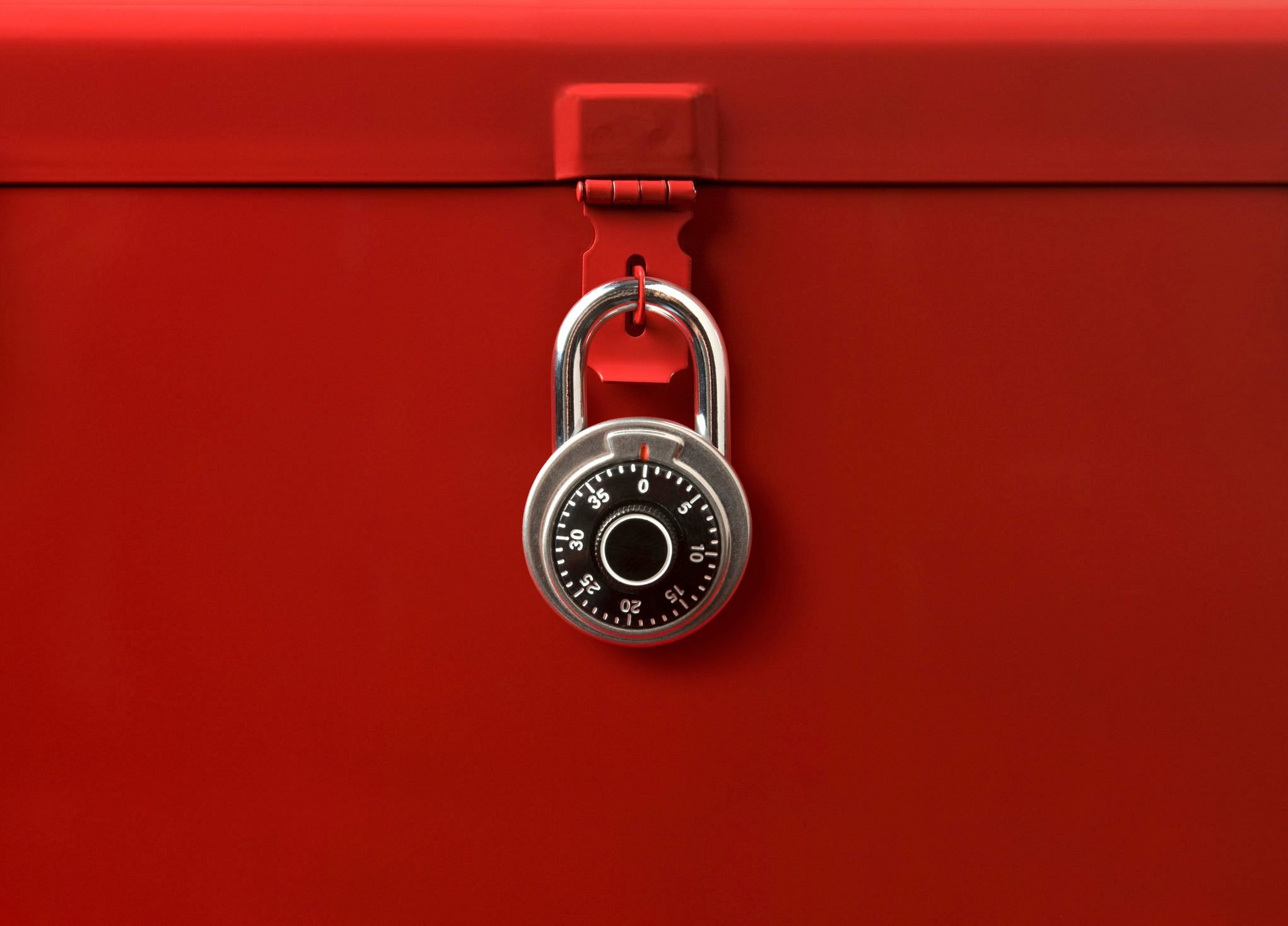
Lock ’em up!
Safe-deposit boxes at banks were once considered the most secure place to stash your valuables. Giant steel vault doors would deter even the most dedicated of thieves, and the two-key system (one for you, one for the bank) was the two-factor authentication of its day. But very little about safe-deposit boxes has changed since they were introduced in the mid-1800s, and many banks don’t even offer them anymore. Plus, a safe-deposit box isn’t actually safe much of the time.
The truth is, stashing valuables at home may be the best option for most people—but a shoebox or filing cabinet isn’t the answer, says Trina Patel, a financial advice manager at Albert, a California-based company focused on helping individuals manage their financial lives. Even if you don’t have wads of cash or mountains of jewels, she says it’s still important to protect what you do have against theft and natural disasters like fires, floods, and hurricanes. A home safe offers convenience and accessibility that a bank, with its restricted hours, can’t. “Going through the pandemic sheds light on the idea that it’s important to have easy access to your things without going out,” Patel says, especially if restrictions tighten or you need to isolate. And a home safe beats a shoebox every time for keeping personal belongings and information out of the wrong hands. For peace of mind, lock up the following for safekeeping at home, and whatever you do, keep valuables out of this room that burglars check first.
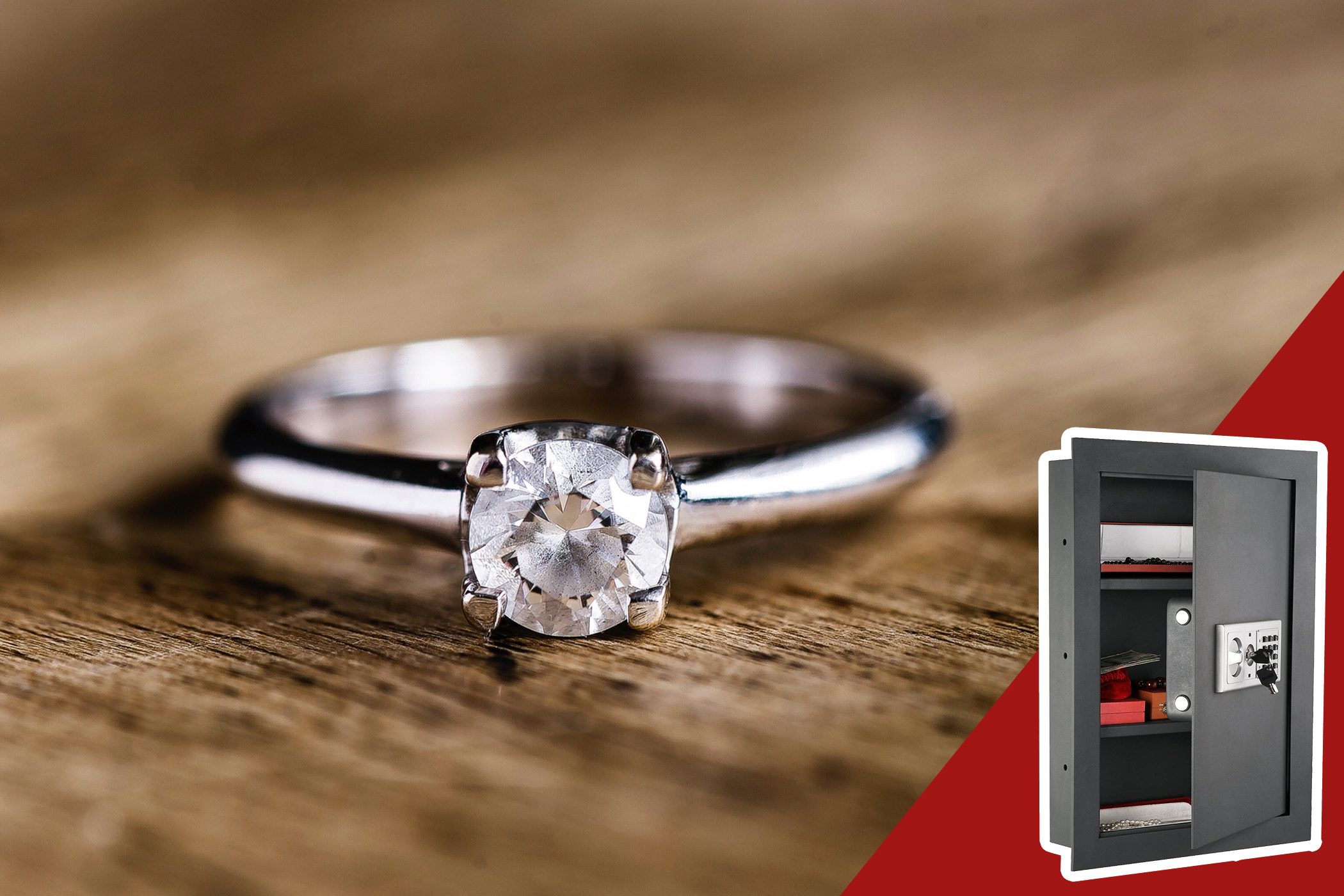
Jewelry
That diamond-encrusted brooch Aunt Martha left you will be safer at home because your homeowner’s or renter’s insurance policy will probably cover it if it’s ever stolen, Patel says. The FDIC (Federal Deposit Insurance Corp.) famously protects money that customers have in their bank accounts but does not cover anything inside a safe deposit box. A wall safe, like this one from Paragon, provides just enough room for a few pieces of jewelry or other small items. It can be installed easily between the studs of your wall and then easily hidden by placing a piece of artwork over it. Here are clever ways to organize your less-valuable costume jewelry.

Tax records
“Financial documents are just as important as any physical assets you might have,” Patel says. You’re supposed to keep your tax records for up to six years in case you’re audited. But Patel says they’re also critical to have when applying for a mortgage or car loan. Make it easy on yourself by keeping tax returns, investment information, W-2 and 1099 forms, receipts, and any other supporting documentation handy, yet safe from prying eyes, in a file safe. This option from SentrySafe is fireproof for up to 30 minutes at 1,550 degrees Fahrenheit, as well as waterproof for up to 72 hours of submersion.

Computer
If you share living or working space with others, don’t leave your computer exposed to theft. Secure it with a dorm safe, like the Stealth College Dorm Safe 5.0. Don’t let the slim, vertical styling fool you; it’s roomy enough to hold your 18-inch laptop and smart enough to charge your computer while it’s in there. The thick steel wall, electronic digital keypad, and bonus security cable should prevent your laptop from “walking away.” Think your roommates are sketchy? Check out these 15 cringe-worthy stories about the worst roommates ever.
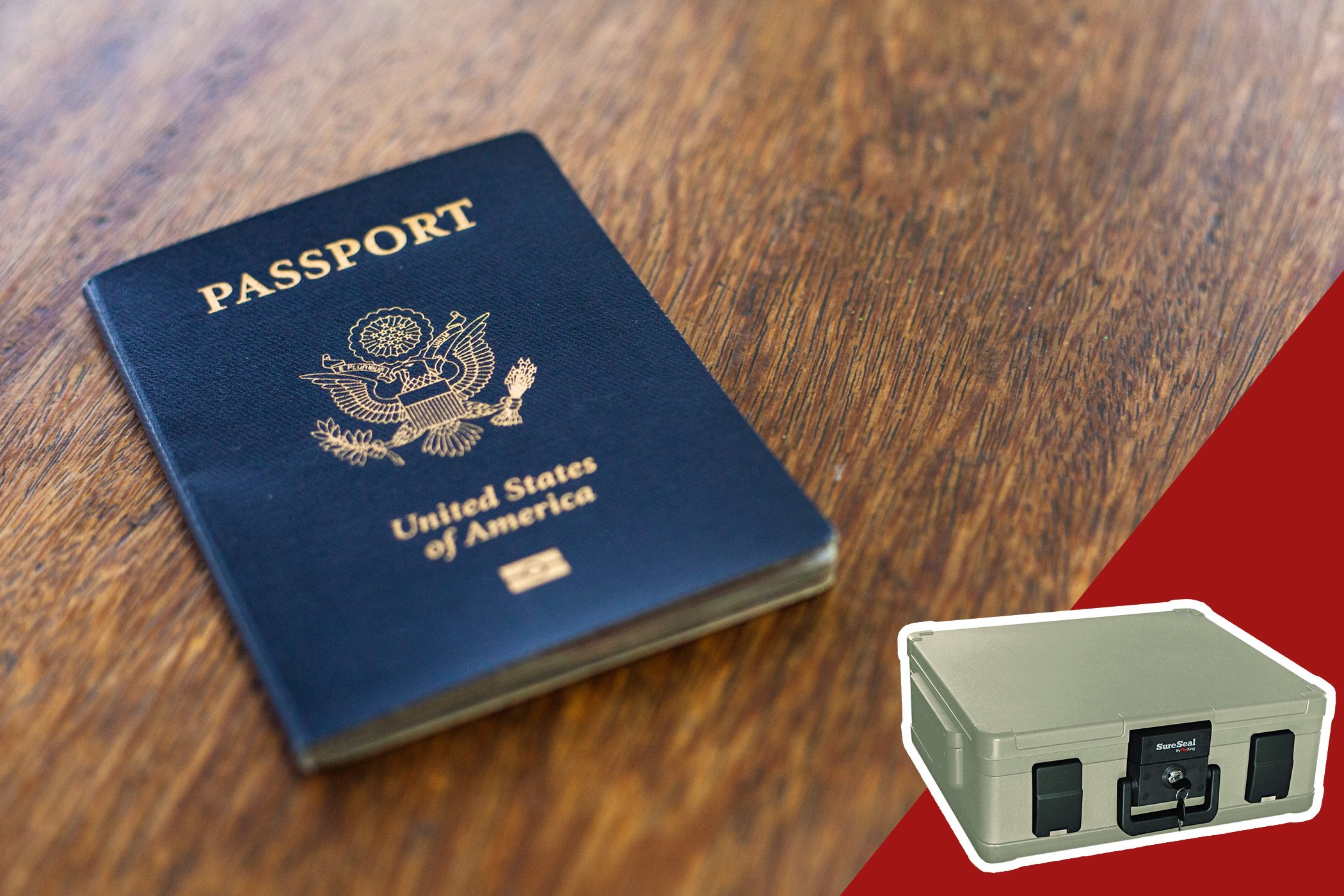
Personally identifying papers
Any document that proves who you are—and that would be difficult to replace—should be kept in a safe, Patel says. This could include your original birth certificate, passport, Social Security card, property deed, car title, and marriage, divorce, and name-change paperwork. The SureSeal by FireKing safe chest holds both legal and letter-sized documents under lock and key, and provides protection against fire and water damage. Protect your identity further by learning the 26 secrets an identity thief definitely doesn’t want you to know.
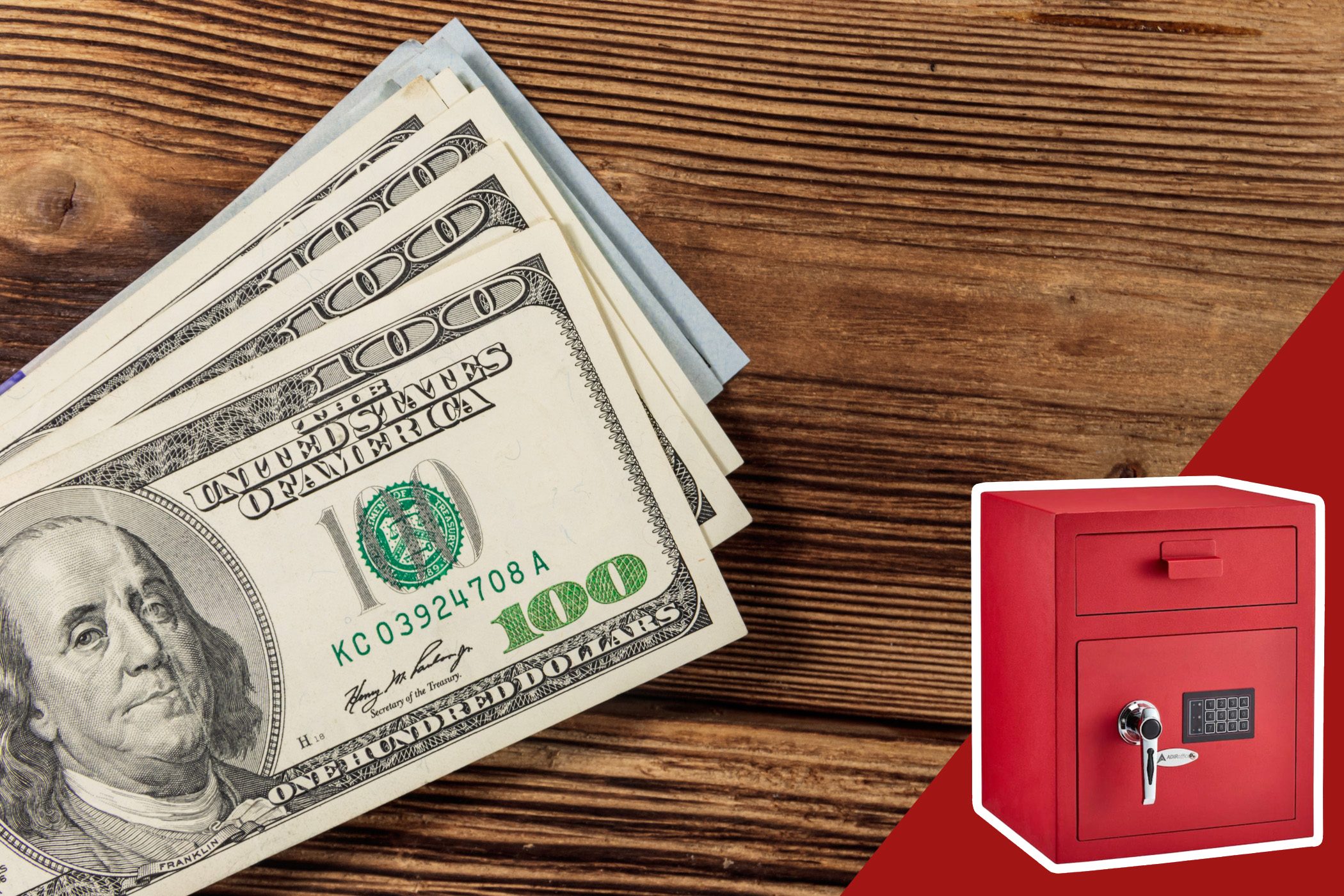
Cash
While most of your cash should be in an interest-earning account, “it’s important to keep some cash on hand at home in case of emergency,” Patel says, citing natural disasters or the banking system going offline as two possibilities. A depository safe lets you deposit money through a slot without actually opening the safe—so not only can it keep cash safe from intruders, but it can also act as a piggy bank for adults who need to keep their money safe from…themselves. This one from AdirOffice can be used with a digital code or a physical key, and we love that it comes in a color besides basic black.
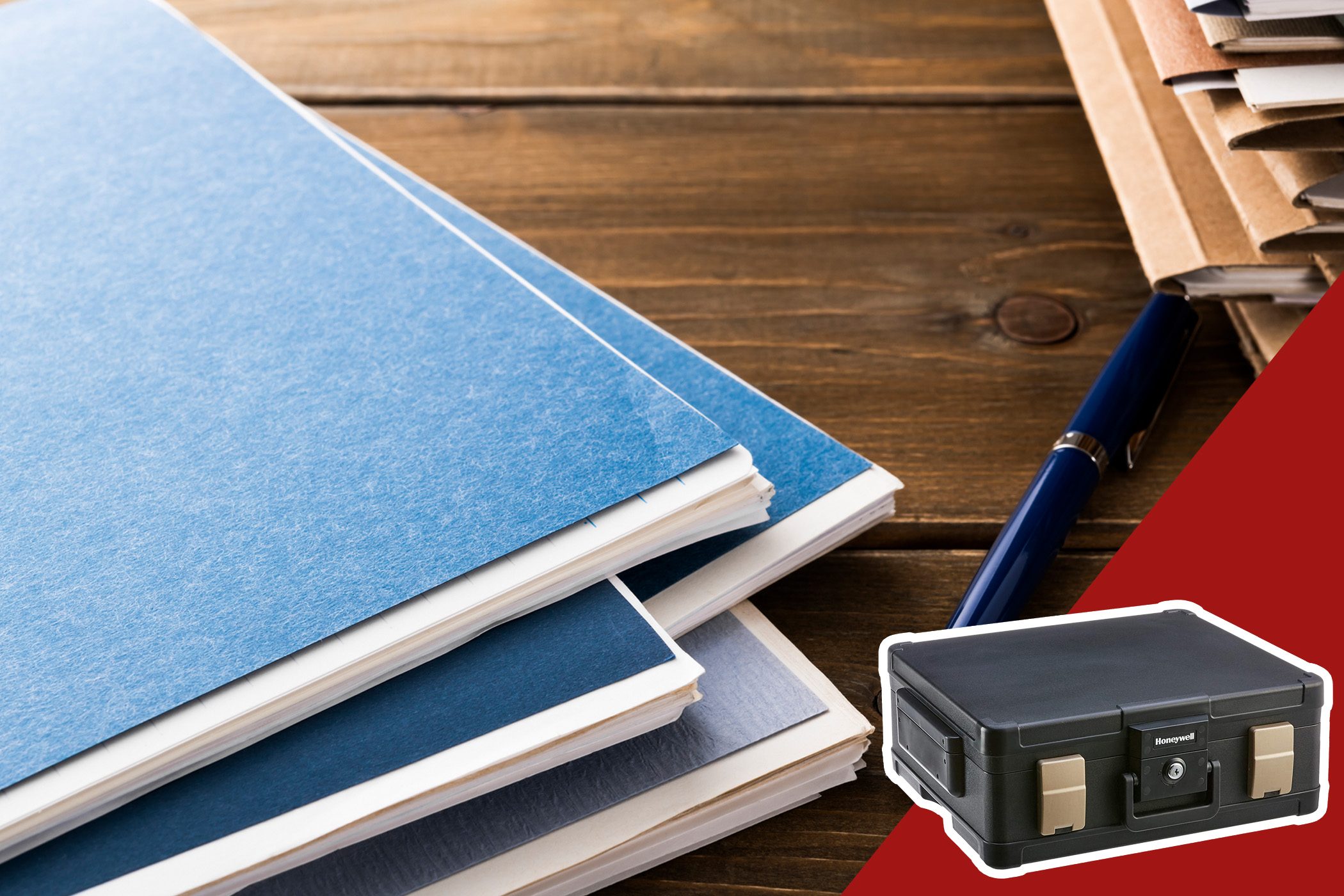
Medical and legal documents
While you might keep a copy of your will in a bank safe deposit box, you should always keep the original in your home. Likewise, you want to have immediate access to any paperwork for a trust, advance directive, health care proxy, or power of attorney for you or your loved ones in the event of a health emergency. This portable safe box from Honeywell can accommodate bulky paperwork as well as flash drives or CDs that might have sensitive information. Bonus: The carry handle makes it easier to transport to doctors’ and attorneys’ offices.
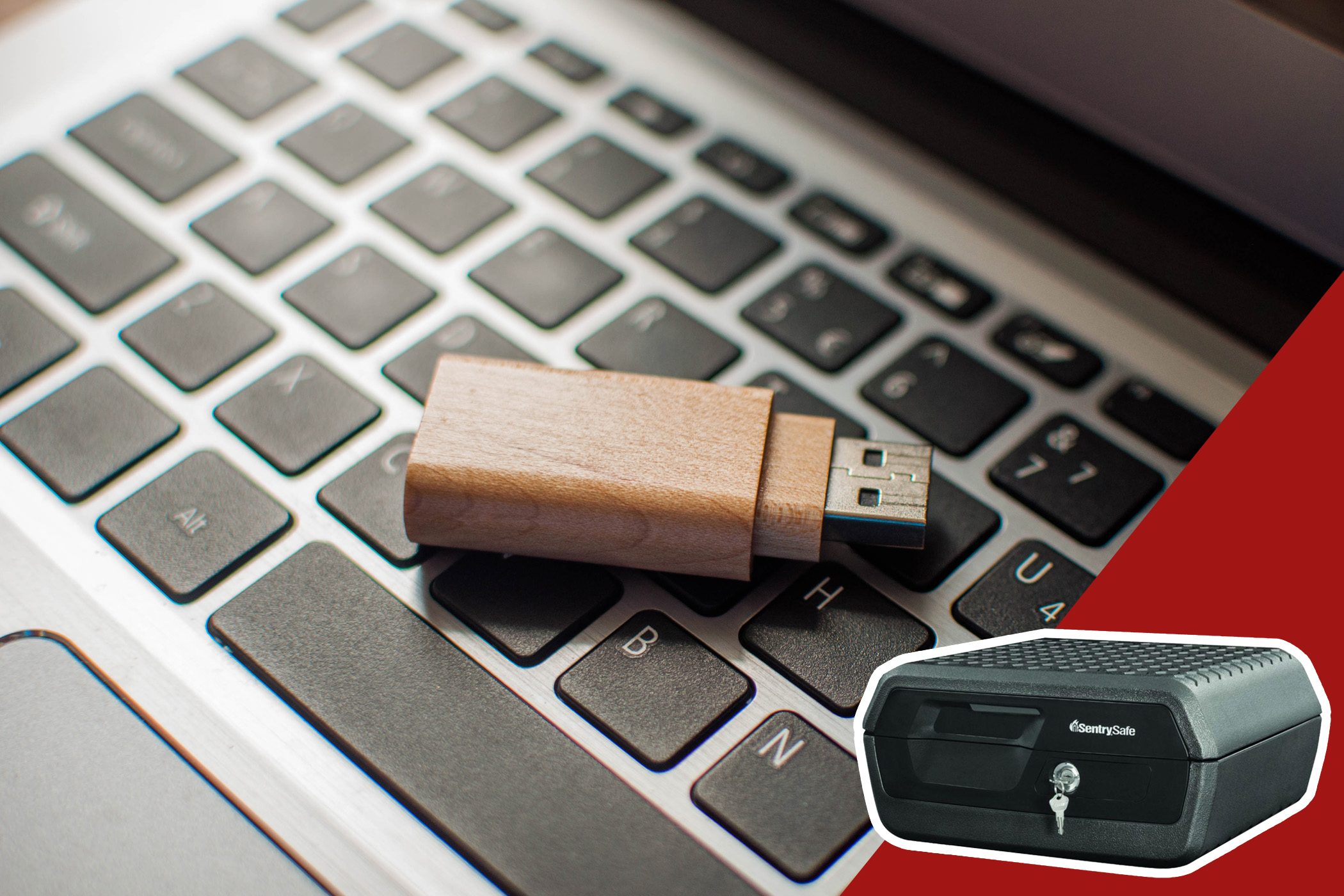
Electronic media
We’ve grown accustomed to keeping many of our records on our computers, but it’s important, Patel says, to have backups. (This is how often you need to back up your computer, by the way.) If a flood damages your computer, you’ll be happy to have photos, financial records, and other important parts of your life backed up on an external hard drive or even a thumb drive or CD/DVD. You can keep them all protected in a media safe, like this .36-cubic-foot option by SentrySafe. It’s rated to protect CDs, DVDs, memory sticks, and USB drives for 30 minutes at 1,550 degrees Fahrenheit. It’s easy to grab in an emergency, too.
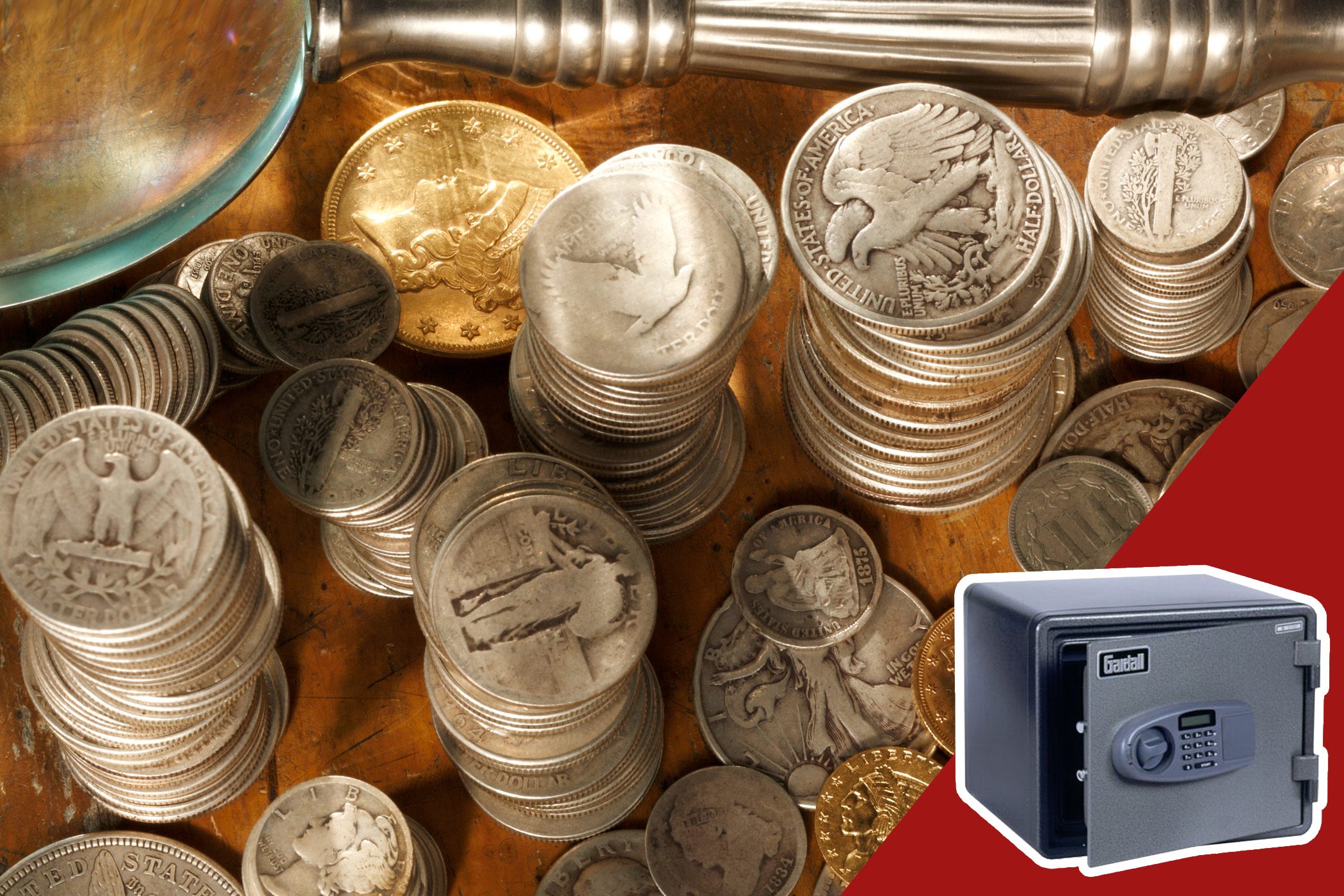
Collectibles
You’d be crushed if anything happened to your collection of coins, stamps, or Pokémon cards. Protect them with a humidity-controlled safe, like this one from Gardall. Not only will it prevent moisture from curling your paper items or tarnishing your coins, but at 85 pounds, it’ll also make it tough for a thief to walk away with it. Important note: If you have one of these quarters, you’re sitting on thousands of dollars.
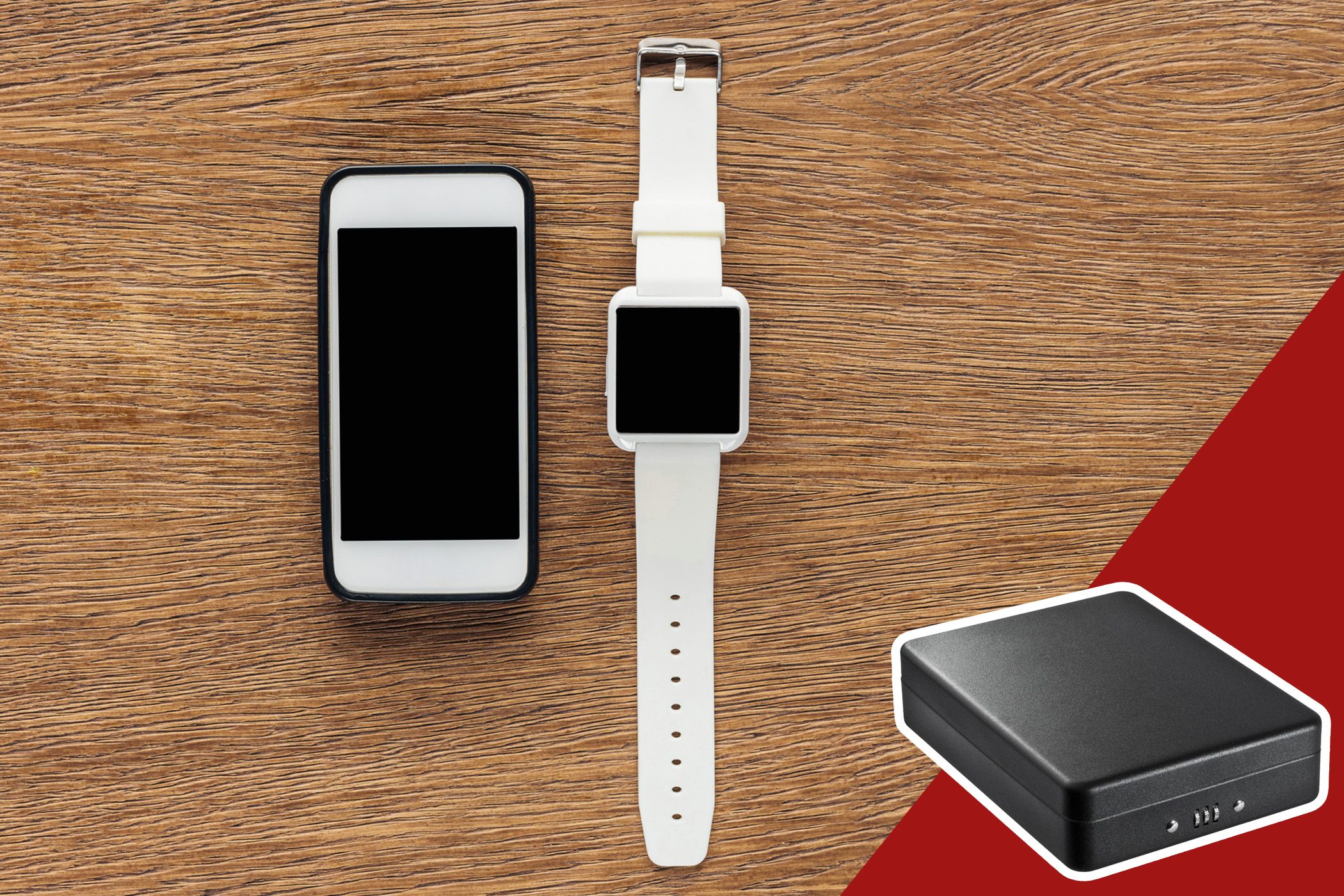
Small electronics
If you spend a lot of time in your car or often travel to destinations without a secure way to lock up your belongings, you’ll want a portable safe that protects your phone, camera, smartwatch, and other small belongings. This Barska lockbox is light enough to carry and slim enough to stash under a car seat or inside your luggage. You’ll also want to protect your devices by avoiding these passwords that hackers will guess first.
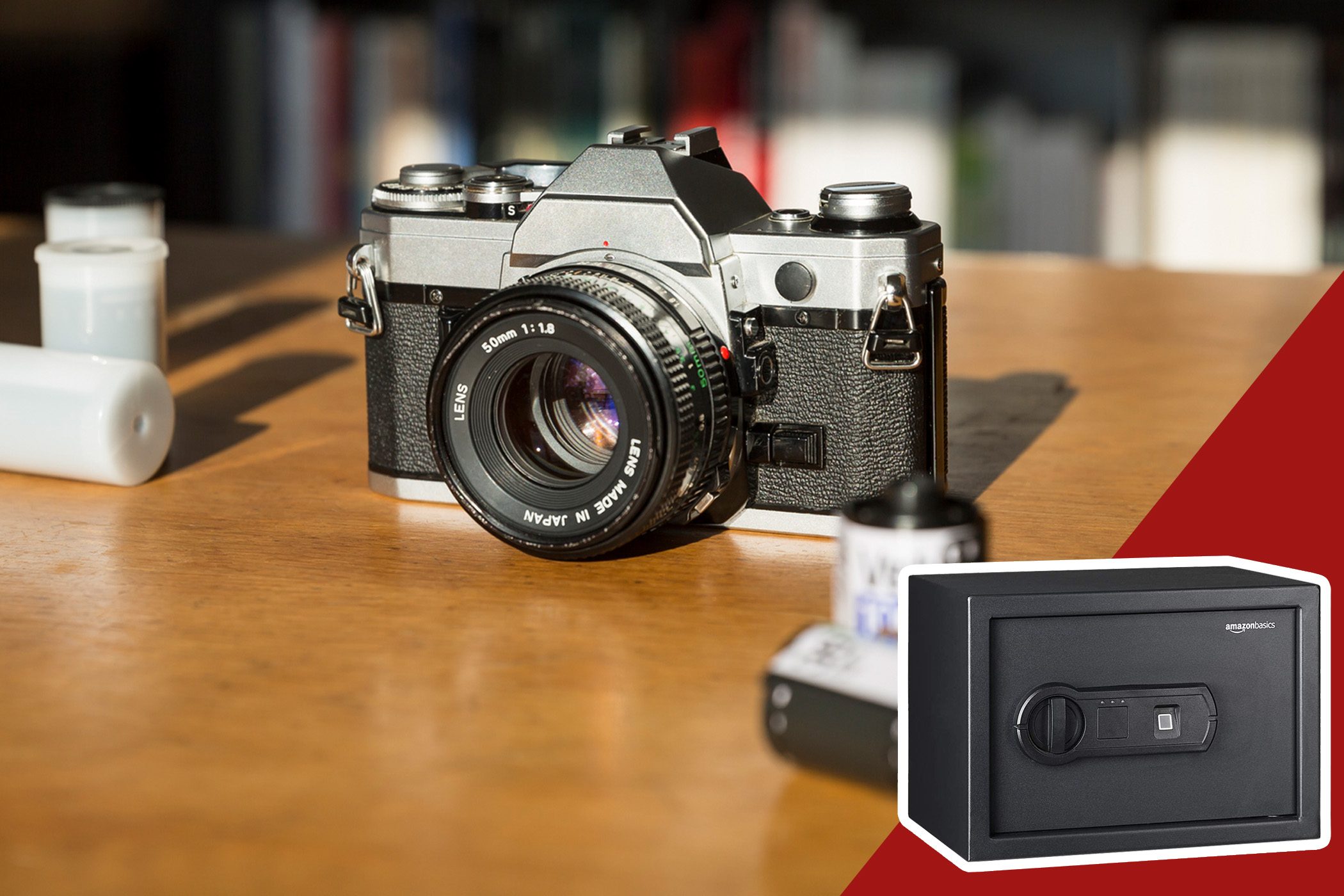
Expensive hobby items
Whether you’ve recently purchased a new digital camera or drone, protect your investment by keeping it in a security safe. You probably only need a small one that you can tuck behind a piece of furniture, like this model from Amazon Basics, which has a biometric fingerprint sensor, boasts heavy-duty carbon steel, and comes with an emergency backup key. Don’t miss these other Amazon products you’ll use every day.

Medications
You might not want your roommates or children to find your medication, for either safety or privacy reasons. You can easily lock it up in a drawer safe, like this one from SentrySafe, meant to hide the smallest of objects. Plus, you can purchase this at the smallest of prices—it’s just $11 at Home Depot!
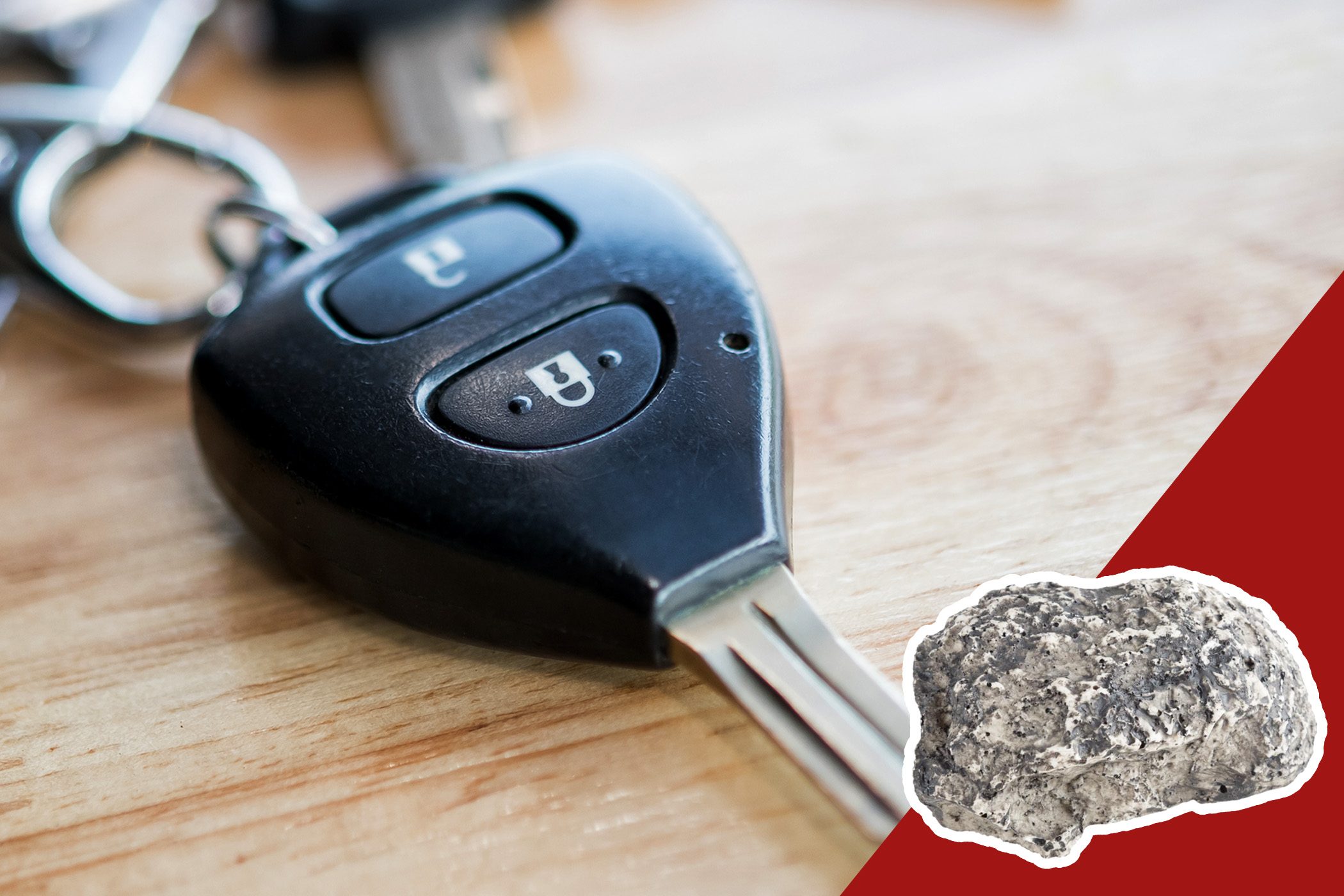
Spare keys
Want to hide a key for your front door outside? A rock-shaped diversion safe does the trick. This Trademark Home key holder is so realistic, would-be intruders would never guess it’s fake when it’s mixed in with other rocks. Other diversion safes look like books you can place among others on your shelf, or even like canned vegetables that you can keep in your pantry. They’re great for hiding the backup keys to your indoor safes. Just remember which books and cans are ringers and which are the real thing! Here are more home safes security experts use in their own homes.
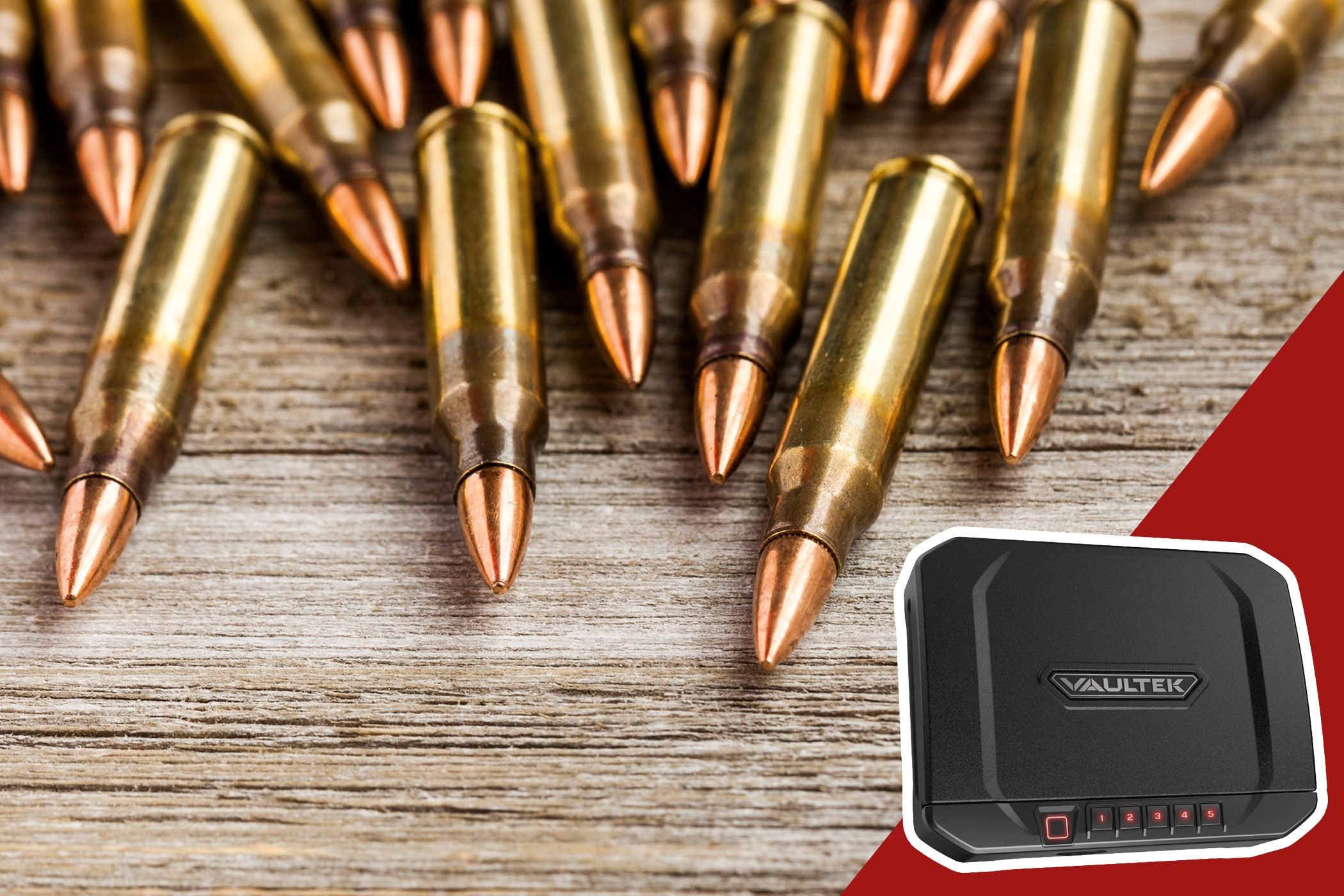
Guns and ammo
If you’re among the 30 percent of American adults who own guns for sport or protection, it’s important to keep them locked up and out of sight so that children or even untrained adults can’t access them. The Vaultek VT20i opens with biometric fingerprint scanning, preventing unauthorized users from guessing a code, and LED lighting helps you see the contents quickly in the dark. Next, find out the sneaky ways FBI agents protect their homes.
Source:
- Trina Patel, a financial advice manager at Albert
